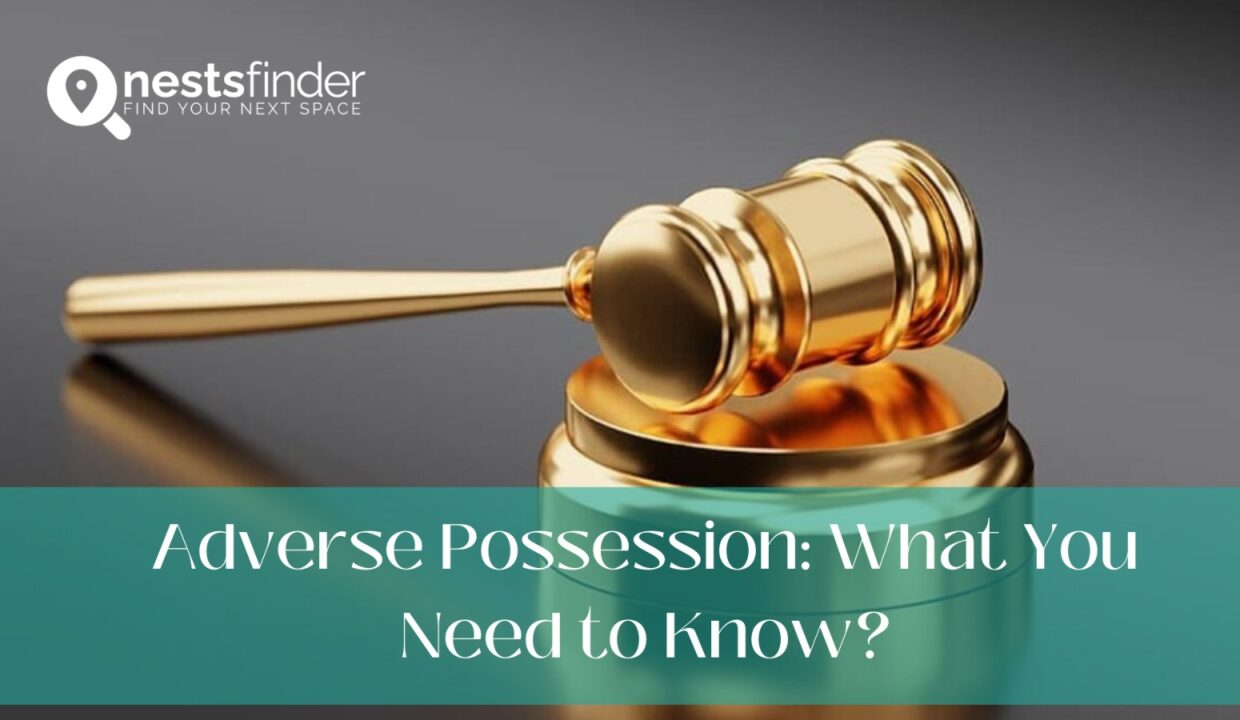Adverse Possession: What You Need to Know?
#realestate #plots #property #propertydeveloper
Adverse possession is a legal principle that allows a person to acquire ownership rights to someone else’s property through continuous, open, and notorious possession of the property for a certain period of time. The specific requirements and time periods for adverse possession vary by jurisdiction, as the laws governing this principle differ from country to country and even within regions.
The general idea behind adverse possession is that if someone occupies a property without the owner’s permission and meets certain criteria, they can eventually gain legal ownership of the property. The rationale for this principle is to encourage the productive use and maintenance of land, prevent disputes over long-unclaimed properties, and provide stability in land ownership. Article 65 of the Limitation Act lays forth the principles underlying the notion of adverse possession.
Time limits for Adverse Possession
The time limits for adverse possession are governed by the Limitation Act, 1963. Under the Act, the statutory period for adverse possession is 12 years. This means that if a person openly, continuously, and exclusively possesses someone else’s property for a period of 12 years without interruption or acknowledgement of the true owner, they may be able to claim ownership of the property through adverse possession.
It’s important to note that the possession must be hostile, meaning it is without the owner’s permission or consent. Additionally, the possession must be open, notorious, and visible to the true owner so that they have an opportunity to assert their rights if they choose to do so.
However, it’s worth mentioning that there are certain exceptions and circumstances where adverse possession may not be applicable, such as when the property is held by the government, religious institutions, or charitable organizations.
Legal Requirement to own a property through adverse possession in India
To establish a claim of adverse possession and legally acquire property in India, certain requirements must generally be fulfilled. The key legal requirements for adverse possession in India are as follows:
- Continuous and Uninterrupted Possession: The possession of the property must be continuous and uninterrupted for a period of 12 years. This means that the claimant must occupy the property without any significant gaps or periods during which they are dispossessed.
- Hostile Possession: The possession must be hostile or adverse, meaning it is without the permission or consent of the true owner. It does not necessarily imply ill intent or animosity towards the owner but signifies an occupation without the owner’s authorization.
- Actual Possession: The claimant must have actual physical possession of the property. They should be physically present and occupy the property in a manner that is visible, open, and exclusive.
- Exclusion of the True Owner: The adverse possessor must exclude the true owner or others with a rightful claim from possessing or enjoying the property during the 12-year period.
- Notorious and Open Possession: The possession must be open, notorious, and not hidden or secretive. It should be apparent to anyone who has a reasonable opportunity to observe that the adverse possessor is occupying the property as if they were the rightful owner.
- Claim of Right: The adverse possessor must assert a claim of right or ownership over the property. This means they should have a belief, however mistaken, that they have a legal entitlement to the property and are not occupying it merely as a licensee or with temporary permission.
- Good Faith: In some instances, good faith or bona fide possession is required, meaning the adverse possessor genuinely believes they are the rightful owner and is unaware of any defect in their title.
It’s important to note that the specific requirements and conditions for adverse possession may vary based on the particular state laws and judicial interpretations. It’s advisable to consult with a qualified lawyer specialising in property law in your jurisdiction to understand the specific legal requirements and implications of adverse possession in your situation.
Conclusion
In conclusion, adverse possession is a legal principle that allows a person to claim ownership of someone else’s property if they meet certain requirements and possess the property openly, continuously, exclusively, and without the owner’s permission for a specified statutory period. The time limits for adverse possession in India are set at 12 years.
To claim adverse possession in India, the claimant must demonstrate actual possession, hostile possession, continuous possession, exclusive possession, and open and notorious possession. These requirements ensure that the claimant has occupied the property openly and visibly, without the owner’s consent, for a significant period of time.
It’s important to note that adverse possession laws can be complex, and there may be additional requirements or exceptions depending on the specific jurisdiction or circumstances. It is advisable to consult with a qualified lawyer who specializes in property law in India to understand the precise legal requirements and implications of adverse possession in your particular situation.




